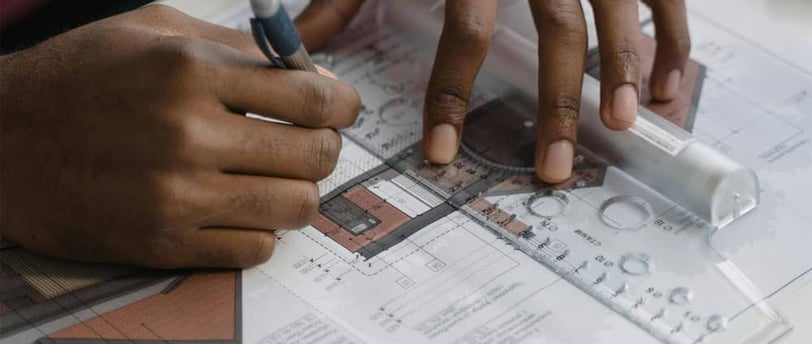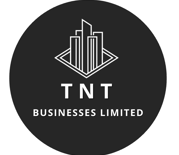A Step-by-Step Guide to Buying Property in Cameroon


Understanding the Real Estate Market in Cameroon
The real estate market in Cameroon has been experiencing significant shifts in recent years, influenced by various factors such as economic growth, urbanization, and government policies. As of 2023, the market reflects a blend of opportunities and challenges for potential buyers. Major cities, including Douala and Yaoundé, have observed a surge in demand for both residential and commercial properties, driven by increasing population and economic activity.
In terms of current trends, property prices vary considerably across different regions. Urban areas have seen substantial price increases due to heightened demand, whereas rural regions present more affordable options. For instance, the average price for a two-bedroom apartment in urban centers can range from 200,000 to 400,000 CFA francs per month, whereas the same apartment in a rural setting may be available for around 100,000 CFA francs. These disparities are primarily influenced by location, accessibility, and amenities available in the vicinity.
Cameroon's real estate landscape encompasses various property types, from single-family homes and apartments to commercial real estate and land for development. Each of these categories appeals to different segments of the market, catering to both local and expatriate buyers. Additionally, luxury real estate is growing, particularly in affluent neighborhoods, presenting investment potential for those seeking higher value assets.
Regional variations greatly impact property values; for instance, the Littoral Region, characterized by its economic significance and infrastructural development, typically commands higher prices compared to the Northern Regions. Factors such as proximity to key services, ease of transportation, and local economic conditions play pivotal roles in determining property values throughout the country. Understanding these dynamics is crucial for potential buyers aiming to navigate the Cameroonian real estate market effectively.
Preparing for Your Property Search
Entering the property market in Cameroon requires thorough preparation to ensure a successful transaction. The first step in this process entails setting a realistic budget. Assess your financial situation, considering not only the cost of the property itself but also additional expenses such as taxes, registration fees, and maintenance costs. Establishing a precise budget will guide your property search and help in filtering suitable options. Additionally, exploring financing options such as loans from local banks may provide greater flexibility in budgeting.
Once a budget is set, it is crucial to determine your specific property needs and preferences. Compile a list of must-have features along with any desired amenities. Consider factors such as the type of property—residential or commercial, the number of bedrooms, proximity to essential services, and lifestyle requirements. This clarity will streamline your search, allowing you to focus only on properties that align with your criteria.
Next, researching neighborhoods is essential. Familiarize yourself with various areas in Cameroon, focusing on factors such as the safety, infrastructure, and access to public services like schools and hospitals. Online platforms and local forums can provide valuable insights into different locales. Moreover, visiting neighborhoods in person will give you a genuine feel for the community.
Involving a local real estate agent can greatly enhance your property search experience. These professionals possess extensive knowledge about the market and can guide you through the buying process, helping to avoid common pitfalls. They can also provide you with listings that may not be widely advertised. Furthermore, gaining an understanding of local customs and real estate regulations is imperative. This knowledge will ensure you adhere to legal requirements and culturally accepted practices during your property search, ultimately facilitating a smoother transaction.
Finding a Property: Research and Viewings
When considering purchasing property in Cameroon, conducting thorough research is crucial. This initial stage not only sets the foundation for your investment but also enhances your ability to make informed decisions. One effective strategy is to leverage the power of online platforms that list available properties. Websites dedicated to real estate in Cameroon can provide a comprehensive view of the market, showcasing various options ranging from residential homes to commercial buildings. Utilizing these resources allows prospective buyers to filter searches based on their specific needs, such as location, price, and property type.
In addition to online listings, exploring local advertisements can unearth hidden gems. Newspapers, community bulletin boards, and word-of-mouth recommendations can lead to opportunities that are not always featured online. Engaging with local communities and networking can further facilitate the discovery of properties that meet your criteria, as many sellers may prefer to promote their listings through these informal channels.
However, no research process is complete without viewings. Once potential properties have been identified, it is imperative to schedule visits. During these viewings, buyers should focus on both the physical condition of the property and the surrounding area. Key aspects to evaluate include structural integrity, amenities, and neighborhood safety. It's advisable to prepare a checklist of critical factors while viewing a property to ensure nothing is overlooked.
Moreover, engaging sellers or agents with pertinent questions can provide valuable insights. Inquire about the history of the property, its ownership, any existing liens, and potential for appreciation or required renovations. Asking about the local real estate market dynamics can also yield useful information that may affect your purchasing decision. Adopting a comprehensive approach during this phase will better equip buyers to find suitable properties and ultimately lead to successful transactions in the Cameroonian real estate market.
Land Verification and Documentation
When considering the purchase of property in Cameroon, the verification of land titles and documentation plays a crucial role. This process ensures that prospective buyers can make informed decisions and avoid potential disputes or financial losses. The first step in this verification process is to confirm the ownership of the land. Buyers should always obtain a certified copy of the land title from the relevant government authority, such as the Ministry of Lands, Surveys, and Urban Development. This document will provide essential information regarding the current owner, property boundaries, and any encumbrances associated with the land.
Next, it is vital to check for any liens or disputes related to the property. This can be accomplished by conducting a thorough investigation with local property registries. Buyers must inquire whether the land is mortgaged or if there are any pending legal issues. Checking the history of the land helps to assess any potential risks that may arise post-purchase. It is prudent to consult with a local lawyer familiar with property laws in Cameroon to navigate this process effectively.
Understanding the legalities involved in property acquisition is equally important. In Cameroon, certain documents are necessary for a legal transaction. These often include a sale agreement, proof of payment, and a transfer document, in addition to the original title deed. Furthermore, due diligence is paramount; this involves verifying that the seller has the right to sell the property and that all property taxes are settled. Doing so will help ensure a smooth transaction and protect the buyer's interests. Ultimately, engaging with legal professionals and conducting thorough checks will significantly enhance the chances of a successful property acquisition in Cameroon.
Negotiating the Purchase and Offer Process
Negotiating the purchase of property in Cameroon is a critical step that demands careful consideration and strategy. When making an offer, it is essential to conduct thorough research on the property’s market value as well as the surrounding environment. This knowledge will empower buyers to present a well-informed offer that both respects the seller's expectations and remains within financial viability for the buyer.
When crafting an offer, it is advisable to start with a lower amount than your maximum budget. This allows room for negotiation, which is a common practice in the Cameroonian property market. Sellers may initially counter with a higher price, so having a clear understanding of your acceptable price range will aid in reaching a mutually beneficial agreement. Additionally, understanding the cultural nuances of negotiation in Cameroon can significantly influence the transaction's outcome; approach discussions with respect and patience, as relationships often play a crucial role in business dealings.
Once a verbal agreement has been reached, it is essential to formalize the negotiation in writing. This written agreement should detail all terms of the sale, including the price, any inclusions such as furniture or fixtures, and payment plans, if applicable. A clear and well-documented agreement helps prevent misunderstandings and provides a reference point for both parties. It is also advisable to engage legal assistance to ensure that all documents comply with local laws and regulations, safeguarding the interests of both buyer and seller throughout the property transaction process.
Ultimately, successful negotiation in the property market in Cameroon hinges on preparation, cultural understanding, and the establishment of clear agreements. By adhering to these principles, buyers can navigate the complexities of property acquisition effectively, ensuring a satisfactory outcome for both themselves and the seller.
The Legal Process: Contracts and Regulations
Purchasing property in Cameroon is governed by a number of legal frameworks that ensure the rights of both buyers and sellers are upheld. At the outset, it is essential to draft a sales contract, which serves as a written agreement outlining the terms of the sale. This contract should include crucial details such as the purchase price, property description, payment methods, and deadlines. It is advisable to seek assistance from a legal expert who is well-versed in property law to ensure compliance with local regulations.
Once the sales contract is drafted, both parties must sign it in the presence of a notary public. Notaries play a pivotal role in the legal process of property transactions in Cameroon. They ensure that the contract complies with the law and are responsible for authenticating the transaction. Furthermore, they facilitate the registration of the property deed with the appropriate land registry authority. This registration is essential as it solidifies the buyer's legal ownership and protects against potential disputes in the future.
Alongside the drafting process, prospective buyers must be aware of the various regulatory compliance requirements. For instance, it is necessary to conduct a thorough due diligence check, which includes verifying the property’s legal status, ensuring there are no outstanding debts associated with the property, and confirming that the seller has the right to sell the property. Additionally, buyers should be informed about taxes and fees related to property transactions, such as transfer fees, registration fees, and property taxes, which can significantly impact the overall cost of the investment.
In summary, understanding the legal framework, including the role of notaries and regulatory compliance, is fundamental when purchasing property in Cameroon. Adhering to these steps will help ensure a legally sound transaction and safeguard the buyer's investment.
Final Acquisition and Registration
Completing the property acquisition process in Cameroon involves several key steps that ensure the transfer of ownership is both legitimate and recognized by legal authorities. Once the purchase agreement is signed, the next crucial step is to execute a formal deed of sale, known as the "acte de vente." This document must be drafted by a notary, who plays a critical role in authenticating the transaction. It is essential that both the buyer and seller are present to sign this deed, confirming their mutual agreement on the terms of sale.
After the deed is executed, one must proceed to register the property with the local land registry office, which serves as the official record of ownership. Registration is fundamental as it protects the buyer against potential claims and disputes regarding the property. To facilitate the registration process, the buyer must provide documents such as the original deed of sale, proof of payment of any applicable taxes, and identification documents. Upon successful registration, the buyer will receive a title deed, which is the legal proof of ownership.
It is advisable to verify if the property is free of encumbrances, such as liens or legal disputes, which could complicate ownership. This due diligence helps safeguard one’s investment and clears any uncertainties associated with the property. Moreover, maintaining communication with local authorities can aid in understanding any ongoing obligations like property taxes or land use regulations post-acquisition.
Post-purchase, homeowners should consider the upkeep of property records, ensuring that any changes in ownership are promptly updated. Engaging with a legal advisor familiar with Cameroonian real estate law can provide valuable insights into ongoing responsibilities and facilitate a smooth transition into property ownership. As you settle into your new property, understanding your rights and obligations is key to a successful ownership experience.


